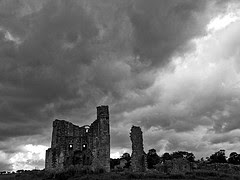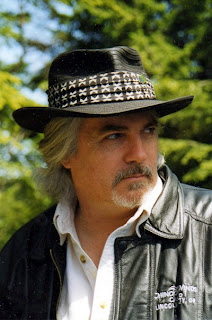Over the past few months, like mushrooms after a rain, scammers have sprung up offering to help indie authors publish their work.
These companies charge the moon for everything from editorial services to formatting to custom design work, and then, ON TOP OF THIS, they take a percentage of your royalties! Here's what Dean Wesley Smith has to say about these people:
I can hear the questions. “But I can’t do covers, so shouldn’t it be all right to trade the work on the cover for a percentage of the sales?”Some writers "believe it's fine to exchange work for a percentage of their property". It's not.
NO!!!!!!!!
For some strange reason, smart writer after smart writer seems intent on wanting and fighting to give away ownership percentages in their work, both with agents, with traditional publishers, with small presses, and with indie publishing “helpers.”
For example, you have a gardner come to your house to mow your lawn. But instead of money, you decide to give the gardner a percentage ownership in your home.No one would consider this, so why do we find it so easy to do in the case of our manuscripts?
I checked out a few of these companies because I wanted to find out how egregious their sins were. I found that many of them were up front about the amount of money they charge for services. One company publicly listed publishing packages costing up to--I kid you not--$10,000!Companies that “Help” indie publishers.
There are two types of these companies. The Good and The Scam.
You always know The Good company when they never ask for a percentage of your work. The fees are up front for the work you need and stated, not hidden. And you always retain all rights to your work and the money goes directly to your bank account.
They work off of what is called a “menu” of services. They are, for the most part, the good. You decide how much you want to pay up front and either pay it or not.
The Bad company tries to hide any fees from you, tries to get you to give them a percentage, wants to handle your money before it goes to you with every sale, even tries to get you to sign up in their online agreements before you can even look at their site.
Solution: Run!!!!
I pretended to be interested in this company's $5,000 package, one which included a website--I used to be a website developer--and asked to see an example site. Folks, these were the plainest, straight out-of-the-box, websites imaginable. The company was using free open source software to create the websites, something anyone with zero skill could do, and it only takes 5 minutes. Most hosting companies will set one of these sites up for free. That's right. For free! AND this company was demanding authors give them a cut of their royalties as well. My gosh! The nerve of some people, it's astonishing.
The Best Case Scenario
Let's say, for the sake of argument, that you find a company, a small press, that does a great job with cover art, and formatting, and editing, etc., and let's say they take somewhere between 15% and 50% of your book in lieu of charging you for the services they provide. Here we're talking about a traditional publisher, but a very small one run by one person, sometimes two.
Here's what Dean has to say:
So you sign up with some small press publisher or some agent “publisher” who promises to get your book into electronic print, and then pay you FOR THE REST OF YOUR LIFE PLUS 70 YEARS 15% every month of everything that comes in.You all know how difficult it is to stick with something. Writing a book for instance! Your book is important to you, right? You love it (or at least you did in the beginning!) and yet it is so very easy to put down. We say things like, I've been so busy, one of my kids got sick, and so on. And there's nothing wrong with this. Life happens.
Yeah, that’s going to happen and if you believe it will, I’ve got a very old bridge to sell you.
Imagine your grandkid trying to chase the grandkid of the agent sixty years after you die to get money and you start to see how really silly that idea is.
Imagine what it's like running a small publishing company in your spare time. The owner/publisher will likely wear more than one hat. They are responsible for acquiring manuscripts (a LOT of reading), negotiating contracts, doing cover art, line editing, formatting and uploading manuscripts and paying authors on time. AND they will probably do all the customer relations. Talk about stress!
How many of these small publishers do you think will still be around in a year? Two years? Five years? Not many. Consider: A medium sized publishing house probably has a few people on staff so if one person needs a break, if life intervenes, then someone else can step in and take over. Generally this isn't so with a small press.
So what happens when a small publisher folds? They've published your ebook and you don't have access to their accounts, and they'll likely have an account on Amazon, Barnes & Noble, Kobo and Smashwords just to name a few.
How do you get control of your book? The best case scenario is that the publisher will unpublish your book and send you the artwork they used for your cover along with the electronic file of your manuscript. But even then, because your book was unpublished, all the reviews your book received will be gone. You'll have to start over from square one.
And that's the best case scenario.
So what do you do? Dean writes:
— First, never, ever allow anyone to work for you for a percentage, either of income or ownership.That's good advice. And it does get easier with practice. Read the rest of Dean Wesley Smith's article here: Killing the Sacred Cows of Publishing: The Myth of Giving Away 15% Ownership in Your Work.
— Second, start learning how to indie publish your own work. It’s scary at first, but fun after that, and it gives you a sense of intense freedom. That way you can be clear-headed on signing a deal with anyone else.
— Third, make sure every contract you sign has a set date where the exclusive rights return to you. Period. Never sign a contract with a “speed limit” or a dollar figure of sales. Just set a date and if the publisher wants the work after that date, they can negotiate a new deal with you.
Other articles you might like:
- Book Promotion: Where's The Line?
- John Locke Paid For Book Reviews
- Fifty Shades of Alice In Wonderland: Sales Peak At $1,000 Per Day
Photo credit: marfis75




















